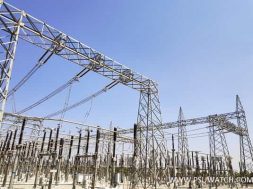
An international fund set up to help developing nations tackle global warming approved $745 million for projects on Friday, but a senior official said a goal of signing off on $2.5 billion by the end of 2016 may slip out of reach. The Green Climate Fund (GCF) board, meeting at its headquarters in South Korea, approved funds for 10 projects including geothermal energy in Caribbean nations, controlling flood risks from melting glaciers in Pakistan, and green energy in sub-Saharan Africa. The new funding raised the GCF total of approved projects so far in 2016 to about $1 billion, well behind schedule to realise the $2.5 billion target for its first full year of operation.
“We may not get there, we don’t know. But we think it’s important to have an aspiration,” Ewen McDonald of Australia, a co-chair of the GCF board, told Reuters after the board meeting in reference to the target. He said the figure had been set mainly to encourage all countries to ratchet up their ambitions for climate finance. The fund is built on donor pledges made in 2014 of an initial $10 billion. Co-chair Zaheer Fakir of South Africa said the $2.5 billion was still possible, even with just one board meeting left, since several big projects were due later in the year. “If the board cannot be ambitious, how do you expect the people who want to engage with the fund to show ambition?” he told Reuters.
Last year, the fund approved a first set of eight projects weeks before almost 200 nations agreed a deal to combat climate change in Paris in December, meant to avert more floods, heat waves and rising sea levels. Red tape means that only one project, to develop household solar energy in East Africa, has so far received money. Last month the GCF disbursed $5 million to Acumen Fund, which is managing the project. And at the three-day board meeting, civil society groups accused the GCF of stifling discussion of individual projects. “We object strongly to the way the funding decisions have been approached here – which we feel is unaccountable, non-transparent and irresponsible,” said Oscar Reyes of the Institute for Policy Studies in Washington DC.
McDonald and Fakir said there was simply not enough time to discuss projects in detail. Separately, the board appointed Howard Bamsey, an Australian diplomat and development expert, as executive director to succeed Hela Cheikhrouhou, who left in August and is now Tunisia’s energy minister. Fakir said Bamsey had the “well-rounded experience” needed to navigate the worlds of finance and diplomacy. (Reporting By Alister Doyle and Megan Rowling; editing by John Stonestreet)













